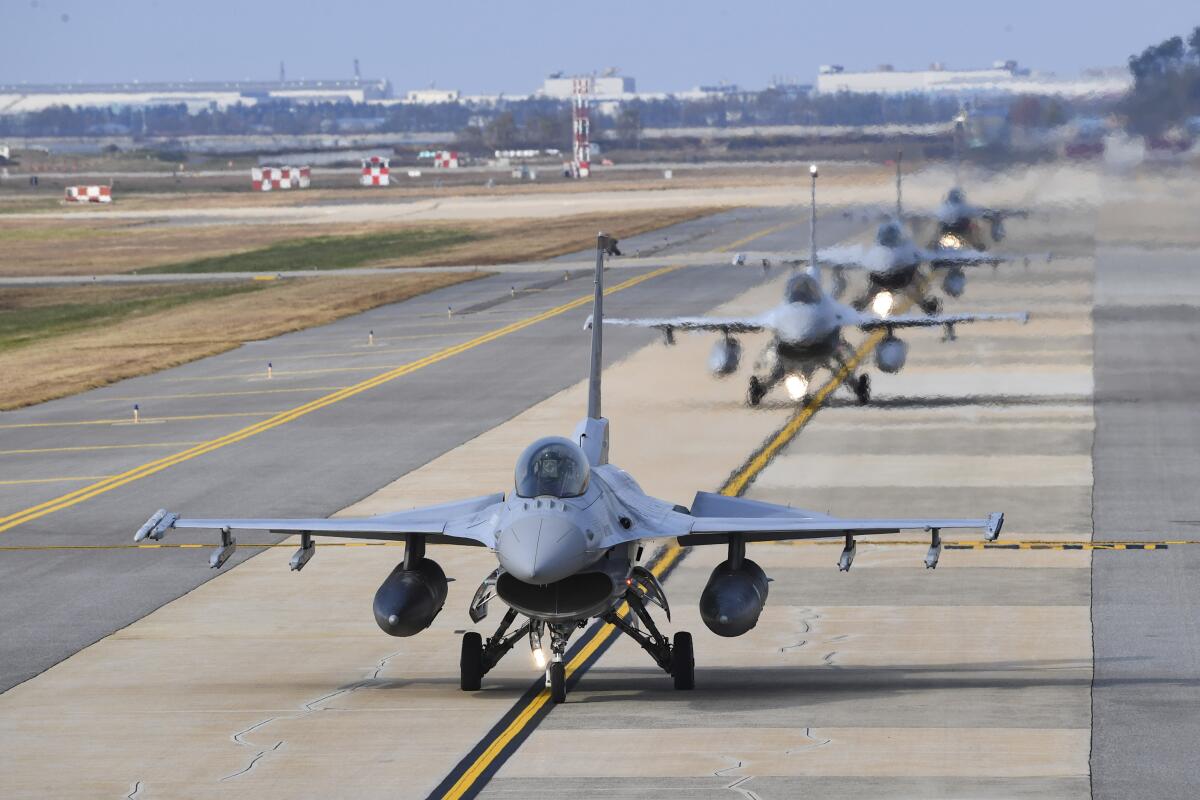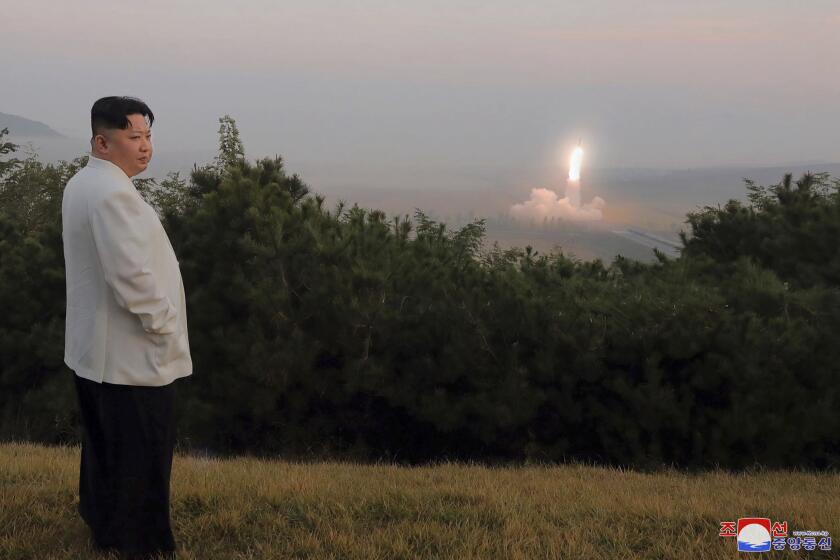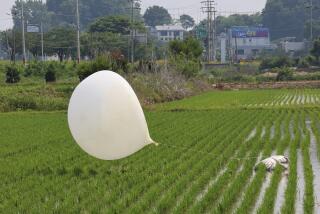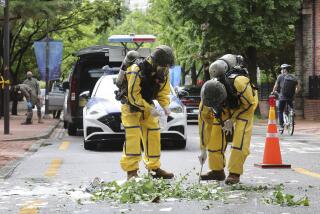North Korea keeps up missile barrage after firing more than 20 a day earlier

SEOUL — North Korea continued its barrage of weapons tests Thursday, firing at least three missiles, including a suspected intercontinental ballistic missile that forced the Japanese government to issue evacuation alerts and temporarily halt trains.
The launches are the latest in a series of North Korean weapons tests in recent months that have raised tensions in the region. They came a day after Pyongyang fired more than 20 missiles, the most it has fired in a single day.
South Korea’s Joint Chiefs of Staff said it detected the North firing a missile it presumed was an ICBM from an area near its capital, Pyongyang, around 7:40 a.m. and then launching two short-range missiles from the nearby city of Kacheon that flew toward its eastern waters.
Although South Korean officials didn’t immediately release more specific details, the longer-range missile may have been fired on a high angle to avoid reaching the territory of neighbors. Japanese Defense Minister Yasukazu Hamada said one of the North Korean missiles reached a maximum altitude of 1,200 miles and flew about 460 miles.
The Japanese government initially said at least one missile flew over its northern territory but later revised its assessment, saying there were no overflights.
The office of Prime Minister Fumio Kishida issued warnings to residents in the northern prefectures of Miyagi, Yamagata and Niigata, instructing them to go inside buildings or underground. There have been no reports of damage or injuries in areas where the alerts were issued.
North Korean leader Kim Jong Un signals more provocative tests to come after a series of missile launches designed to simulate use of nuclear weapons.
Kishida said North Korea’s missile launches are “outrageous and absolutely intolerable.” He said he will sort out further details as officials analyze the missiles.
One of the more than 20 missiles North Korea launched Wednesday flew in the direction of a populated South Korean island and landed near the rivals’ tense sea border, triggering air raid sirens and forcing residents on Ulleung island to evacuate. South Korea quickly responded by launching its own missiles in the same border area.
Those launches came hours after North Korea threatened to use nuclear weapons to get the U.S. and South Korea to “pay the most horrible price in history” in protest of ongoing South Korean-U.S. military drills that it views as a rehearsal for a potential invasion.
North Korea last flew a missile over Japan in October in what it described as test of a new intermediate-range ballistic missile, which experts say potentially would be capable of reaching Guam, a major U.S. military hub in the Pacific. That launch also forced the Japanese government to issue evacuation alerts and halt trains.
North Korea has been ramping up its weapons demonstrations to a record pace this year. It has fired dozens of missiles, including its first demonstration of intercontinental ballistic missiles since 2017, as it exploits the distraction created by Russia’s war in Ukraine and a pause in diplomacy to advance arms development and dial up pressure on the U.S. and its Asian allies.
The North has punctuated its tests with an escalatory nuclear doctrine that authorizes preemptive nuclear attacks over a variety of loosely defined crisis situations. U.S. and South Korean officials say North Korea may up the ante in the coming weeks with its first detonation of a nuclear test device since September 2017.
Yamaguchi reported from Tokyo.
More to Read
Sign up for Essential California
The most important California stories and recommendations in your inbox every morning.
You may occasionally receive promotional content from the Los Angeles Times.











